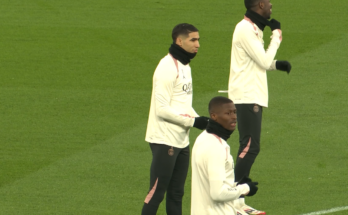YOUTH football today is becoming ever increasingly tactical, statistical and data-based. However, founder and co-creator of Playground Football, Matt Beckingham, is looking to alter the course of how the ‘beautiful game’ is being introduced to children.
Listen to the full podcast with Matt Beckingham on Soundcloud.
Beckingham aims to bring football back to its roots, placing creativity at the forefront of the campaign.
In a recent podcast hosted by Matthew Cook alongside Sports Journalist, Owen Bolger, Beckingham stated:
“We were finding more and more with football coaching that it’s becoming so structured and adult-led… How can we go back to recreating that playground football like we used to play at school or in the street?”
By utilising 3v3 games on inflatable pitches, Beckingham is adamant about giving the children autonomy in their game.
There are no instructions supplied, no tactics given, and no adult interference.
The kids make their own decisions, including substitutions, on their own, giving them the freedom to express themselves in the game.
Beckingham drew parallels to an adult working world
“Would you expect your boss to be shouting at you while you’re writing an email? How can you expect kids to play at their best when you’re stood on the sideline shouting at them and making every decision?”
While some coaches and parents may find this approach challenging, the benefits are clear: children are enjoying football again.
Beckingham’s co-founder, Steve Guppy, has already found great success of rolling the programme out internationally in countries such the USA and Canada.
Teaming up with the former England winger has helped to push this vision wider. The two share concerns of the increasing rigidity in modern football, even at grassroots level.
“Football now is becoming so robotic… Everyone wants to be a Pep [Guardiola] wannabe and it’s starting to filter down to under-8s. You’re asking kids to do passing patterns before they even understand the game.”
The pair advocate for more 1 on 1 opportunities, helping the children to work on beating their opponents, taking risks, and enjoying the ball just being at their feet- just like Guppy did when he played.
During the podcast, Owen raised the question: is the trend hurting football itself, or just the joy of it?
“It was a bit of a shock and a worry when a parent told me their child was doing passing patterns… It’s not a criticism of grassroots football, but when I was growing up, it was all about creativity.”
He described how nowadays the game is dominated by stats, positional zones, and fears of making mistakes- even for kids just starting out.
Ultimately, Playground Football is less about coaching and more about the culture.
Enjoying the game should be at the centre of everything, including the joy of scoring goals and the freedom to imitate their idols.
“Let’s get them to express themselves and enjoy playing. It shouldn’t be about tactics at a young age. It should be about falling in love with the game.”
As Beckingham continues to promote this style of teaching on the South Coast, it offers a timely reminder that sometimes in football the best way of coaching is knowing when to stay silent.



